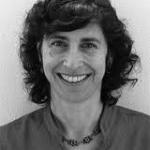I grew up in Spokane, down the street from my grandparents. They were early 20th century immigrants from Eastern Europe who arrived at a time before the term “refugee resettlement” had been coined. My grandfather, who fled the Ukraine because of pogroms, arrived in America as a teenager with his mother, joining his father who came earlier. My great-grandfather had established a small store but died of a burst appendix within a few months of the family’s reunification. My 17-year-old grandfather was left to run the store and support his mother and an infant brother.
 Even though the store was quickly bankrupt, the local non-Jewish Russian-speaking lumberjacks found a way to buy the inventory and then gift it back to my grandfather so he could keep the business going. Why did those non-Jewish lumberjacks help my grandfather? Apparently, although the details are now lost, my great-grandfather had helped them, and they felt it was now their duty to help his family.
Even though the store was quickly bankrupt, the local non-Jewish Russian-speaking lumberjacks found a way to buy the inventory and then gift it back to my grandfather so he could keep the business going. Why did those non-Jewish lumberjacks help my grandfather? Apparently, although the details are now lost, my great-grandfather had helped them, and they felt it was now their duty to help his family.
My grandfather was indebted to these non-Jewish Russian-speaking Americans. He became known for his willingness to help them, and others who came later, when they came to him for advice or assistance. According to family lore, he always had a pot of soup ready in the back of the store. If those men were hungry, he was prepared to feed them.
It wasn’t lost on my grandfather that back in the Ukraine he would have been afraid of many of these same people. Here in America, it was different. In America, my grandfather understood that people of all different backgrounds could support and help each other.
My grandfather was very involved in and committed to the Jewish community. He taught me to be proud of my identity and showed me that it is a Jewish value to view each person as an individual and to help anyone in need.
My grandfather understood the Torah command to welcome and to love the stranger, for we were once strangers in Egypt. He knew first-hand how difficult it is to be vulnerable and seeking refuge. My grandfather was a stranger, and he was helped not only by the Jewish community but also by those tough lumberjacks.
Although he hid from Cossacks as a child in the Ukraine, when he came to America he was helped by people from the same ethnic background as those terrifying Cossacks. And he, in turn, helped them. In spite of difficult Ukrainian childhood experiences, my grandfather was a generous man, open to the possibility of good in others, especially those he had personal historical reasons to fear.
Today, as so many seek refuge in America, I am certain that my grandfather would be proud that I work at JFS, an agency committed to refugee resettlement. He would be pleased that a Jewish organization is providing support to non-Jewish refugees. In this time of darkness in the world, my grandfather remains my inspiration and my guide.
 By Beth Huppin
By Beth Huppin
Beth is the Director of JFS Project Kavod/Dignity. She has enjoyed teaching Judaics to children and adults of all ages in both formal and informal settings for over 30 years. She is the recipient of a 2010 National Covenant Award for Excellence in Jewish Education..



